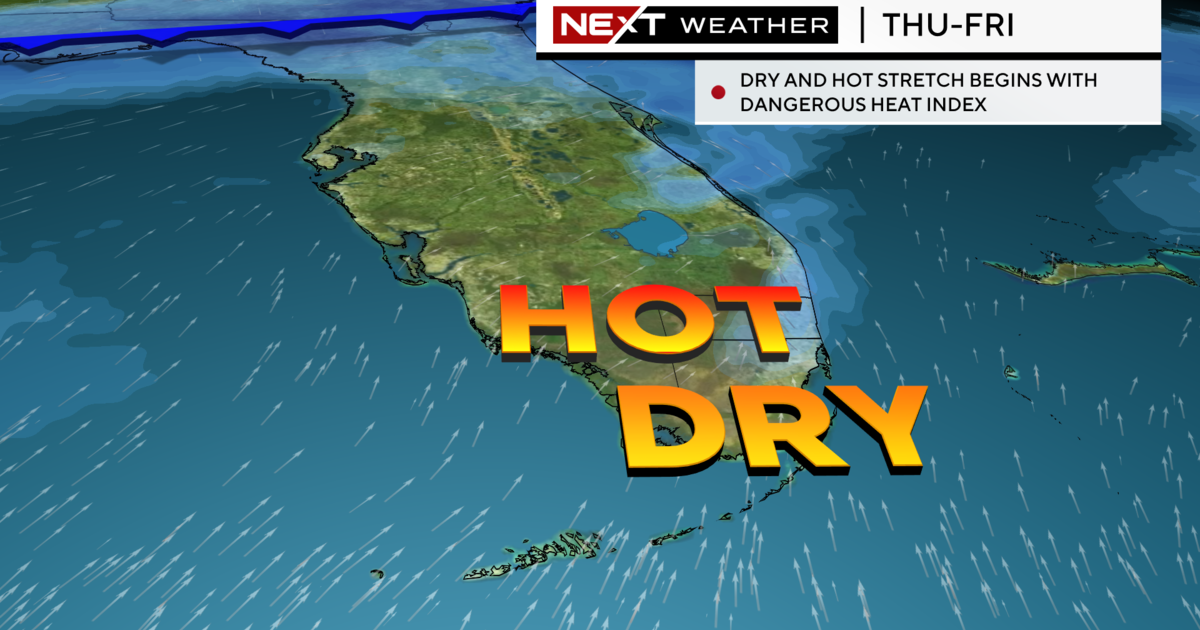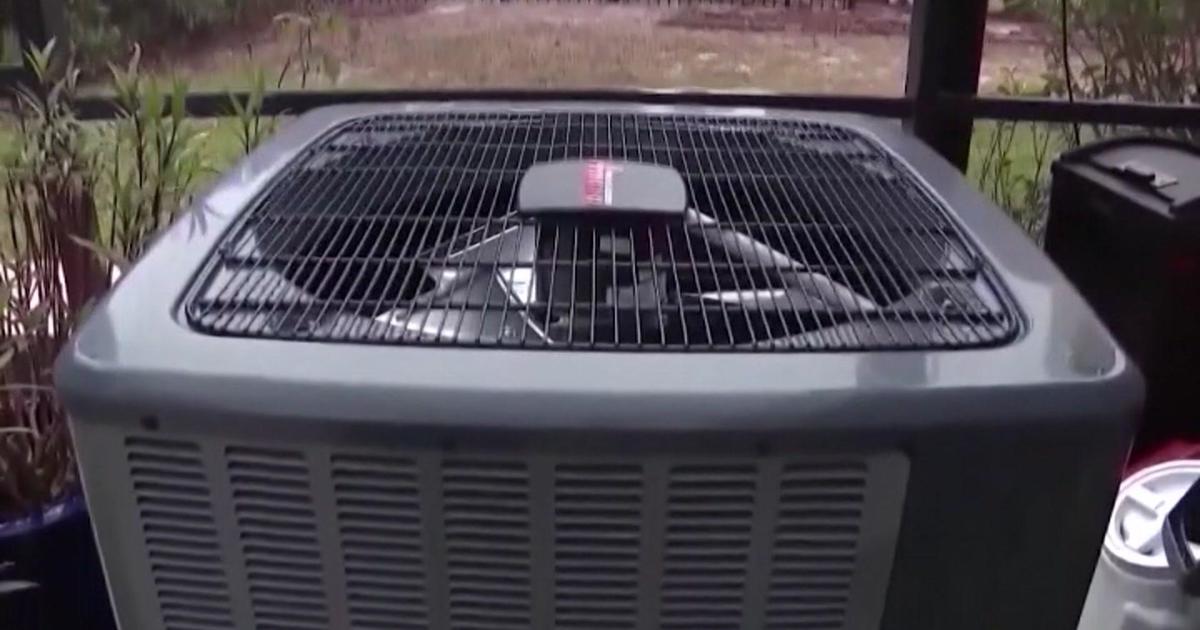Omicron vs. Delta: Scientists Race To Determine Severity, Transmissibility & Vaccine Effectiveness
MIAMI (CBSMiami/CNN) – Local, state, federal, and leaders across the world are monitoring the spread of the new COVID-19 variant, Omicron.
The variant, first identified by South African scientists, is believed to be potentially more transmissible which has led to a wave of travel restrictions across the globe.
There is still a lot that's unknown about the Omicron variant, but scientists are racing to determine its severity, transmissibility and whether it evades current vaccines.
On Monday, President Biden warned that the Omicron variant will eventually reach the US, but he also urged Americans to stay calm. The President also insisted no widespread lockdowns are coming.
Moderna CEO Stéphane Bancel said in a statement last week the mutations in the Omicron variant were "concerning," adding that the company has been "moving as fast as possible to execute our strategy to address this variant."
He said on Tuesday, COVID-19 vaccines are unlikely to be as effective against the Omicron variant of the coronavirus as they have been against the Delta variant.
"There is no world, I think, where (the effectiveness) is the same level we had with Delta," Bancel told the Financial Times. "I think it's going to be a material drop. I just don't know how much because we need to wait for the data. But all the scientists I've talked to, . are like 'this is not going to be good''."
Federal Reserve Chairman Jerome Powell, meanwhile, is set to testify Tuesday that the Omicron variant threatens America's economic recovery. If the variant prolongs the pandemic, it could keep prices rising, hurt job growth and make the supply chain crisis worse.
Meantime, the US is still dealing with the Delta variant.
Overall, the US is now averaging 70,094 new COVID-19 cases and 730 deaths each day, according to Johns Hopkins University. And JHU says 75% of intensive care unit beds in the US are occupied, 15% of them by COVID-19 patients.
Much is being made of the 50 mutations that mark the Omicron variant -- 32 of them on the spike protein, which is the club-shaped structure that covers the surface of the virus and is used to attach to human cells so the virus may infect them.
But Delta has its own constellation of scary mutations, and they've made it the worst version of the virus yet seen. It races through populations, replacing more worrying variants that have mutations that should allow them to evade the effects of vaccines, like the Beta variant, for instance.
Robert Garry, a virologist at Tulane University, has done a head-to-head comparison of the mutations seen in Delta and Omicron.
Omicron does have "a chunk of them at once," Garry told CNN. "But we've kind of seen that kind of leap in evolution before," he added.
"There are definitely hotspots where this virus likes to mutate now," he said. But just because there are many mutations doesn't necessarily mean they'll add up to a meaner virus.
"What all those changes in the aggregate are going to do for the things that matter for this virus, we don't really know yet," Garry said.
But he does not see many important mutations that might make the Omicron version more contagious than Delta.
"The ones that might affect transmissibility, I mean, I'm just not seeing a whole lot that would give it a real strong advantage over Delta," he said.
"That's really the big question. You know, when it gets into a population that has Delta, is it going to out-compete or not out-compete?"
Other genetics experts also note Omicron does not carry some of the changes that helped make Delta so very contagious.
"Given that Omicron lacks so many of the non-spike mutations that have seemed to contribute to Delta's increased fitness I wouldn't be surprised if its intrinsic transmissibility is similar to Gamma," Trevor Bedford, a genome scientist and epidemiologist at the University of Washington and Fred Hutchinson Cancer Center in Seattle, said on Twitter. He referenced a study in September from researchers at the Broad Institute who found at least three mutations on the Delta variant that they said appeared to help make it more transmissible.
Some of the mutations that increase transmissibility are also seen in variants that died out, such as one called Kappa.
Garry does see mutations that might help Omicron to evade the body's immune response -- especially from previous infections.
"It's likely immune evasive. So is Delta, and before that Alpha and Beta. Should we be working on a specific vaccine? Yes," he said.
The immune response prompted by vaccination is broader than the response produced by a natural infection, so vaccinated people may still be protected from severe disease, doctors said.
"Your best protection against Delta is to get vaccinated, and if you've already been vaccinated and six months have passed since you got Pfizer or Moderna, get your booster, two months since J&J, get your booster," Collins told CNN.
"That was a reason already, but now add Omicron to the mix," he said. "And we do believe that this new variant, which will probably come to our shores, will also be something vaccines and boosters can help you with."
The CDC strengthened its guidance on boosters Monday, saying all adults should get booster shots six months after finishing the first two doses of Moderna's or Pfizer/BioNTech's vaccine and two months after getting Johnson & Johnson's single-dose vaccine.
And there's no known mutation that can make a virus evade precautions such as face masks, handwashing and physical distancing. Even if a mutation helps a virus become more viable as an airborne pathogen, better ventilation can help prevent transmission.
(©2021 CBS Broadcasting Inc. All Rights Reserved. Cable News Network, Inc., a Time Warner Company, contributed to this report.)



